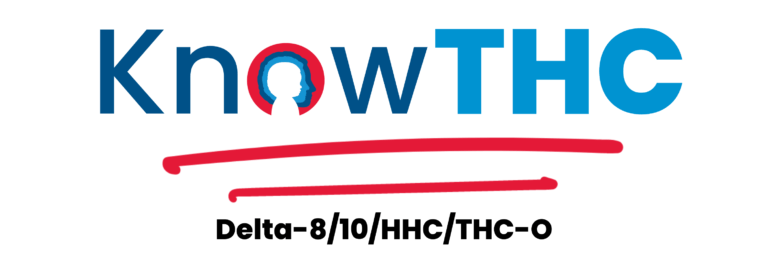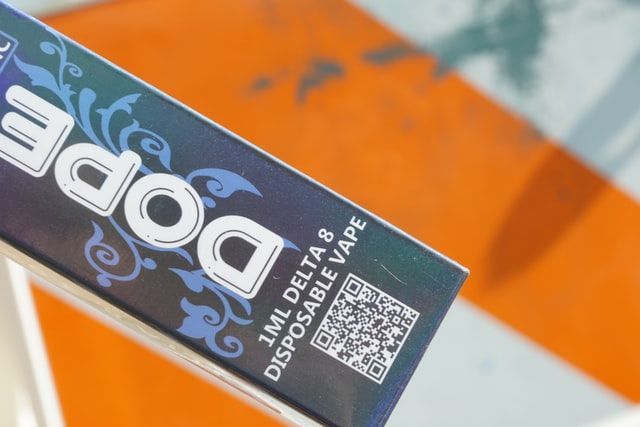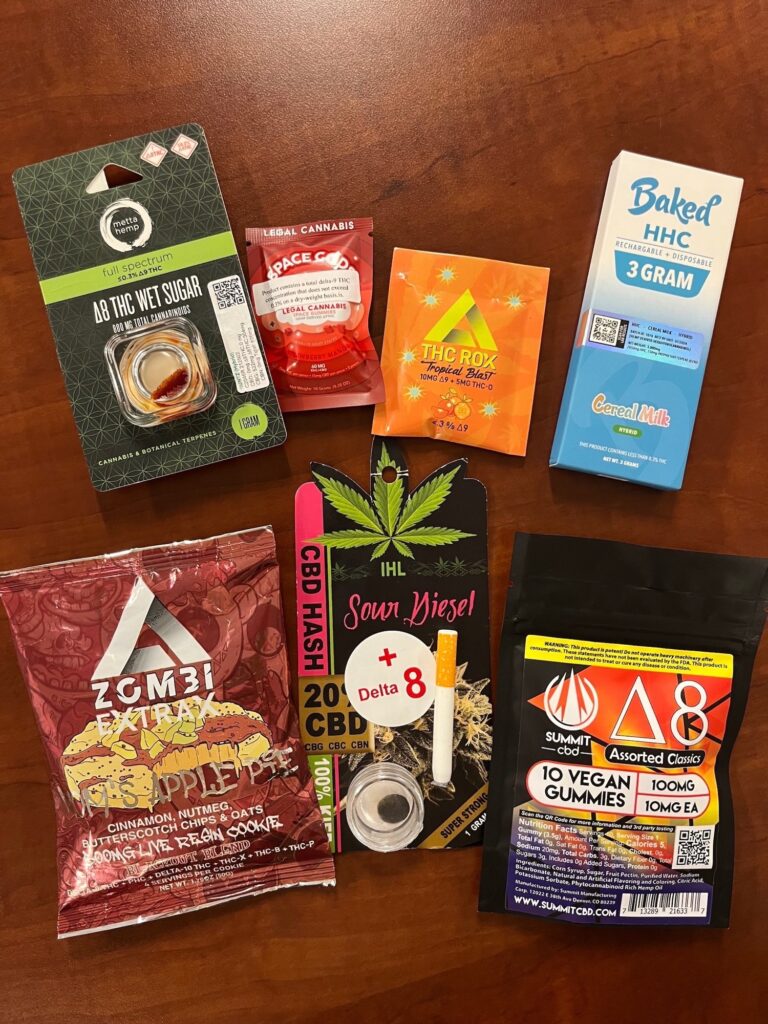
June 22nd, 2023
There are so many things to be aware of while raising kids and THC is one more IMPORTANT topic to put on that list. We hope the below information will help you stay up on the constantly changing and newly emerging THC products while better supporting the kids in your lives.
Please consider using this information as a starting point for further learning and thoughtful discussions with your family and friends. Share widely with those that care about kids!
Why it Matters:
Science tells us the brain does not fully develop until young adults are about 25 years old. As the adolscent brain develops, it is vulnerable to any substance that interferes with neural pathways which regulate emotion, mood, and behavior.
A growing market of THC products, derived from the hemp plant, made federally legal via the 2018 Farm Bill, has exploded across the United States. Substances like Delta-8 THC, Delta-10 THC, HHC, THC-O, and THC-P mimic the intoxicating effect of delta-9 THC marijuana products.
Warnings from the FDA include:
- Delta-8 THC has psychoactive and intoxicating effects.
- Many of the chemicals used in synthesizing delta-8 may be harmful.
- National poison control centers received 2,362 exposure cases of delta-8 THC products between January 1, 2021, and February 28, 2022. Many involved patients less than 18 years of age that required medical evaluation and hospital admissions.

What you need to know:
Marijuana plants contain many different natural chemical compounds called cannabinoids. Cannabinoids affect the brain, body, and central nervous system. Delta-9 THC is one of the most prevalent and well known as the psychoactive compound that causes the intoxicating effects in marijuana.
The 2018 Farm Bill, included an amendment to the Controlled Substances Act to exclude the hemp plant from the definition of marijuana, provided it contains no more than a 0.3% concentration of delta-9 THC on a dried weight basis. It didn’t take long for industrious chemists to figure out how to chemically extract THC cannabinoids from hemp which is considered legal under the farm bill.
These compounds are now being used to create products that have an intoxicating effect without any required health and safety protections for the consumer. Our youth are at the most risk because they may have unfettered access to these products in some markets. The current market demand for these products is growing quickly and state and federal officials are just beginning to respond.
Most consumers assume that products are regulated and safe as they are brought to market. These products however are not under any oversight for safety. Some states have made the products illegal but the online markets make enforcement difficult and confusing. For example, THC cannabinoids derived from marijuana would be illegal and classified as a Schedule 1 controlled substance, while the same cannabinoid derived from hemp could be considered legal. Some state age requirements are 18+, some are 21+. Colorado does not allow certain products to be sold in state, but allows for those same products to be sold and shipped to consumers in other states.

These THC products are sold in different forms including vaping products, beverages, and edibles including cookies and candy. Items can be purchased for as little as $20 in the same places and under the same laws that allow CBD products to be sold. They are easily available online, at convenience stores, gas stations, and head shops, where there may not be age limits or enforcement depending on state and local laws.
Some of the different compounds synthesized from hemp:
Delta-8 THC is just one of the many cannabinoids found naturally in cannabis plants. The natural amount of delta-8 THC in hemp is very low, however, delta-8 can be extracted from legal hemp through a chemical process or synthetically created in a lab from CBD. The psychoactive compound affects the brain similarly to delta-9 THC when inhaled or ingested.
Delta-10 THC doesn’t activate the brain like delta-9 THC but still causes a psychoactive effect that may include mood changes.
HHC (hexahydrocannabinol) is a cannabinoid found naturally in small amounts in the hemp plant. CBD can also be synthesized into HHC through a chemical process. Although HHC isn’t technically a THC, it is an intoxicating cannabinoid and produces similar such as euphoria and changes in auditory and visual perceptions. It also has similar side effects such as insomnia, anxiety, and paranoia. Because HHC is not THC, THC regulations may allow HHC to remain on the open market.
THC-O is a non-natural cannabinoid, also called THC-O-acetate. THC-O production begins by extracting delta-8 THC from hemp, then it is combined with other chemicals to synthesize THC-O. THC-O is potentially more intoxicating than delta-8, delta-10, HHC, and even delta-9. This may be because it binds more tightly to the brain’s cannabinoid receptors than the other THC forms. “Many users describe THC-O as producing an almost psychedelic high, with borderline hallucinogenic effects.” as stated in a Vaping360 article. Similar to other synthetic cannabinoids like Spice and K2, the effects and side effects can be severe.
THC-P is said to be the strongest cannabinoid discovered yet to date. It offers the same intoxicating effects and euphoric feelings associated with traditional delta-9 THC, though potentially more intense. According to an article in Discover Magazine THCP binds to CB1 receptors stronger and more quickly than traditional THC, which means THCP is potentially up to 33x as potent as THC. Users can have a stronger psychoactive effect that can be felt almost immediately after consumption.
There has been little research done on these compounds and little is known about their effects on the brain and body, yet they are often mistakenly grouped with CBD products.
CBD is a chemical found in marijuana and is considered non-psychoactive. However, most CBD products are sold as supplements that are not regulated by the FDA so labeling, dosage, and purity may be inconsistent and in some cases contain intoxicating amounts of THC. Some CBD products are also sold in combination with delta-8, delta-10, HHC, and THC-O, the effects of which have not been researched or regulated.
The CBD industry has promoted information claiming that if CBD is in combination with THC at a certain ratio the THC is rendered non-psychoactive. There currently is no definitive science confirming that to be true.
Other cannabinoids that you may hear of in the future include THCH, THC-JD, THC-V, CBN, CBG, THCA, CBDA, CBG, CBGA, CBC, CBCA, CBCV, CBCVA, CBDV, CBDVA and CBN. The list is seemingly endless.
Rita’s Story
Brian was a sweet, loving, hard-working 19-year-old. When Brian turned 18, he began using both Delta-8 and Delta-9 THC products. As his mother, I counseled Brian on why not to use these products. He reassured me that he was fine, but then Brian began to hear voices and complained of loss of time. He was in psychosis due to delta intoxication. Brian took his own life on October 15, 2021.
As a parent, I did not know much about the delta-8 products. I honestly thought it was just CBD. I have made it my life’s mission to tell Brian’s story and to help educate others on the effects of delta-8 products. They are not safe. These products are harmful to our youth. My tragedy should never happen to another family. If you want to know more about Brian’s story we have a Brian Fuller Legacy group on Facebook. Edited for brevity.

The science on these products is nearly non-existent however realize that the manufacturers believe that these products do have intoxicating effects as their marketing includes descriptions like:
chill vibe, energizing buzz, relaxed, euphoric, calm-elevating experience, mellow buzz, energetic high
Stated effects include:
- can last for several hours
- produce a sense of creativity and focus
- may feel too stimulating for some people
- each form of THC can produce different effects and levels of intoxication.
Some ads and articles even include warnings:
“Remember, THC is a psychoactive product, which means it can alter one’s perception and produce slower reaction times, which can make someone more prone to bad decisions and injury, which is why it’s important to use THC gummies responsibly.”
What you can do:
Support regulations and updates to the Farm Bill that help distinguish the plant product from processed or “downstream” products intended for human consumption.
- Minimum purchase age of 21 for any products containing a psychoactive substance derived from hemp
- Issue regulations to provide limits on potency, serving size and allowable amount per retail sales
- Prohibitions on harmful ingredients and additives
- Labeling requirements
- Marketing restrictions to protect kids
- Data collection and reporting on adverse health effects
Know that identifying all the intoxicating components now and in the future will prove to be a challenging task and will need future monitoring. Keep your eyes and ears open to new terms and slang youth and young adults are using. Research new terms you hear (i.e. these products are sometimes referred to as “marijuana-lite” or “diet weed”). Stay informed, talk to your kids, and stay engaged.
With over 100 cannabinoids in the cannabis plant, marijuana, and hemp products continue to evolve very rapidly while science, research, information, and legislation struggle to keep up. New products, often kid-friendly and aggressively marketed, continue to be readily available. Share your concerns with your local and state representatives.
THC is THC is THC. It is psychoactive no matter where it comes from be that a hemp or marijuana plant, regardless if it started as CBD or as THC, and whether it is delta-8, delta-9 or delta-10. It should not be available to kids at the corner store.
Please visit our website and follow us on Twitter, Facebook and LinkedIn.
Thank you for your care and support in better protecting our kids.
The One Chance Team
Additional resources:
Talking with Your Teen About Marijuana
Cannabis Awareness and Prevention Toolkit | Stanford Medicine

